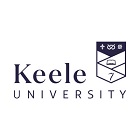- News and articles
- Find usIDP AustraliaIDP BahrainIDP BangladeshIDP CambodiaIDP CanadaIDP ChinaIDP EgyptIDP GhanaIDP Hong KongIDP IndiaIDP IndonesiaIDP IranIDP JordanIDP KenyaIDP KoreaIDP KuwaitIDP LebanonIDP MalaysiaIDP MauritiusIDP Middle EastIDP NepalIDP New ZealandIDP NigeriaIDP OmanIDP PakistanIDP PhilippinesIDP Saudi ArabiaIDP SingaporeIDP Sri LankaIDP Taiwan, ChinaIDP ThailandIDP TurkeyIDP UAEIDP VietnamIDP Corporate
- Social
- English
- Where we operate
- Courses
- Scholarships
- IELTS
- About IDP
- Student Essentials
- News and articles
- Find us
- Find us
- Find nearest IDP offices
- IDP Australia
- IDP Bahrain
- IDP Bangladesh
- IDP Cambodia
- IDP Canada
- IDP China
- IDP Egypt
- IDP Ghana
- IDP Hong Kong
- IDP India
- IDP Indonesia
- IDP Iran
- IDP Jordan
- IDP Kenya
- IDP Korea
- IDP Kuwait
- IDP Lebanon
- IDP Malaysia
- IDP Mauritius
- IDP Middle East
- IDP Nepal
- IDP New Zealand
- IDP Nigeria
- IDP Oman
- IDP Pakistan
- IDP Philippines
- IDP Saudi Arabia
- IDP Singapore
- IDP Sri Lanka
- IDP Taiwan, China
- IDP Thailand
- IDP Turkey
- IDP UAE
- IDP Vietnam
- IDP Corporate
- Social
- Language Switcher
- IDP Education /
- Colleges and Universities /
- United Kingdom /
- Keele University /
- Msc Biomedical Science (Med...


Location
United Kingdom
Qualification
Masters Degree (Taught)
Fees
GBP20700
(2025)
Duration
1 Year(s)
Next intake
22 September 2025
Entry Score
6.5
IELTSCourse info
- Scholarships View all scholarships
- Internships
Entry requirements for Keele University
IELTS - 6.5 with 6.0 in all components
TOEFL ibt -87 with 19 (writing), 19 (listening), 19 (reading) and 20 (speaking
Application Deadline
The application deadline isn't available Speak to an IDP counsellor for more detailed information
Further information
If you aren't eligible for the above entry requirements, you might ant to explore pathway options at Keele University. If you want to find out more, speak to our counsellors.
THE World Ranking
501st / 1250
THE World Ranking65th / 130
Complete University guideWhat our students think
We’ve haven’t received any reviews for this institution yet.
Recommended for you
- THE World Ranking:501
- Masters Degree (Research)
- Keele , United Kingdom
- Next intake:09/2025
- GBP16042 (2025)
- THE World Ranking:501
- Masters Degree (Research)
- Keele , United Kingdom
- Next intake:09/2025
- GBP16042 (2025)
- THE World Ranking:501
- Masters Degree (Research)
- Keele , United Kingdom
- Next intake:09/2025
- GBP16042 (2025)
- THE World Ranking:501
- Masters Degree (Taught)
- Staffordshire , United Kingdom
- Next intake:09/2025
- GBP5600 (2025)
- THE World Ranking:501
- Masters Degree (Research)
- Keele , United Kingdom
- Next intake:09/2025
- GBP16042 (2025)
- THE World Ranking:351
- Masters Degree (Research)
- Tooting , United Kingdom
- Next intake:09/2025
- GBP16750 (2025)
- THE World Ranking:351
- Masters Degree (Research)
- London , United Kingdom
- Next intake:09/2025
- GBP16750 (2025)
- THE World Ranking:351
- Masters Degree (Research)
- Tooting , United Kingdom
- Next intake:09/2025
- GBP16750 (2025)
Your action plan
Step 1
Shortlist your courses
Choose the best three courses you’re most likely to pursue.
Step 2
Check your eligibility
Get an instant in-principle offer for courses with the IDP FastLane tag.
Step 3
Apply through IDP Live
Fill out the form once and use it to apply to multiple courses.
How does IDP FastLane work?
With the FastLane 'Offer in Principle', you'll know in minutes if you'll be accepted!
Select an institution and course
Create your academic profile
Submit your application for an 'Offer in Principle'
Your chosen institution(s) will send you a decision in minutes!
Get ready to apply with an expert counsellor




